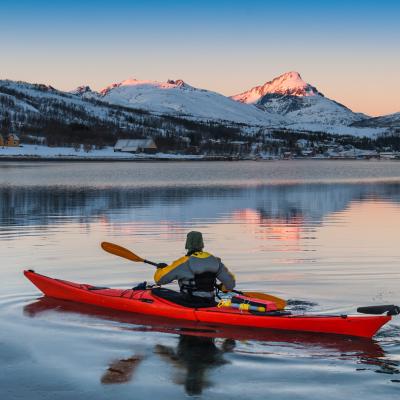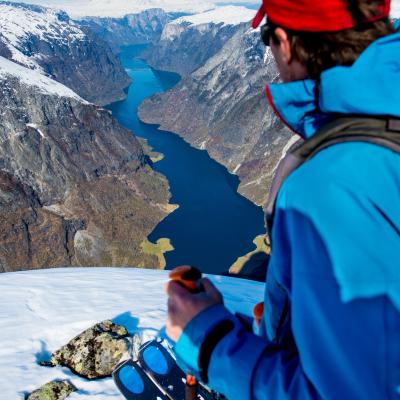Invest in your future
Studying in Norway is an investment in your future. Norwegian higher education institutions are ready to invest in you as a student, and are well known to offer quality education - in all aspects of your student experience
On this page
Will Norway be a match?
Let these questions guide you in your decision making.
- Do you meet the academic requirements?
- Have you documented your English language skills?
- Are you able to cover your own living costs and eventual tuition fees?
Entry requirements
Entry requirements for a bachelor’s or master’s degree programme
The general basis for admission to Universities and University Colleges in Norway is called the Higher Education Entrance Qualification (GSU). For applicants with foreign education, the requirements are specified in the GSU-list, which specifies the requirements for different countries.
In addition there are often language requirements and sometimes also more specific academic requirements for the particular study programme.
Read more about admission to degree-programmes.
Entry requirements for exchange students
Are you already enrolled in a study programme and interested in a semester or two in Norway, within your degree? If so, you should ask the office in charge of exchange/international relations at your university for more information about requirements, deadlines and what options might be available for an exchange to Norway.
Please find more information about how to become an exchange student in Norway.
Entry requirements for degrees taught in Norwegian
For courses where the language of instruction is Norwegian, proficiency in a Nordic language is required and should be documented. Read more about study opportunities and requirements at utdanning.no. (external link – in Norwegian).
Tuition fees
Degree seeking students from outside of EU/EEA and Switzerland must normally pay tuition fees when studying in Norway. The tuition fees are based on the real cost of the respective study and varies between institutions and study programmes.
Students from Norway, Switzerland and countries in the EU/EEA area are exempted from paying tuition fees at public higher educational institutions.
Exchange students, doctoral candidates and students coming to Norway through schemes like, Fulbright, Erasmus Mundus, NORPART, NORHED or StAR (Students At Risk) are normally exempted from paying tuition at the public institutions.
Here you can read more details about tuition fees for students at Norwegian public higher educational institutions.
Living costs
To support your daily life, you need a place to live, food, electricity, transport and more.
The estimated living cost for a student is stipulated to NOK 13 790 per month or 151 690,- per year (2024-25). In addition you may have costs related to insurance, travel, visa fees and eventual tuition fees.
All students have to pay a semester fee of approximately 600 - 1000 NOK per semester to the student welfare organisation ("Samskipnad" in Norwegian). The student welfare organisations offer student housing, childcare, sport facilities, health and food services for students at the institutions.
Housing through the Samskipnad is normally secure and more reasonable priced than competing for a room on the open market, but is subjected to competition, especially in the bigger cities. Many students chose to share a flat to keep the costs down.
Scholarships
The Norwegian government offers no individual scholarships open to all international students. In most cases, you have to find other ways of financing your studies in Norway. However, there are a few schemes and foundations that offer scholarships to degree students and scholarships to exchange students, including PhD.
Study permit
If you come from a country outside the EU/EEA and wish to study in Norway, you must apply for a residence permit for studies. This is also called a study permit
The requirements are the same for exchange and degree seeking students, staying in Norway for three months or longer, but varies depending on nationality.
Regardless of your nationality, you must be able to support yourself financially to study in Norway. It is estimated that you need at least NOK 13 790 per month or NOK 151 690 per year (2024/25) to cover your living costs in Norway.
Students from outside the EU/EEA/Switzerland are required to show proof of funds to obtain a study permit.
At the website of the Directorate of Immigration (UDI) you can find out what applies to citizen of your country.
Students from outside the EU/EEA/Switzerland must apply for a study permit
If you come from a country outside the EU/EEA/Switzerland and wish to study in Norway, you must apply for a study permit and pay an application fee. This also applies to UK citizens. You must meet certain criteria to obtain a study permit, for example proof of admission, housing, and funding. To get a study permit, you need to be admitted as a full-time student at a Norwegian institution.
If you are granted a study permit, you are allowed to work for up to 20 hours a week while you are studying, and full-time during holidays.
Students from the EU/EEA/Switzerland must register
If you come from the EU/EEA or Switzerland, you must register with the local police within three months of your arrival. You can work in addition to your studies.
Read more about how to register and the conditions that apply at UDI.no. (external link)
Students from a Nordic Country must register
If you come from one of the Nordic countries and plan to stay for more than six months, you need to report your move to the National Registry. You can work in addition to your studies.
Read more about how to register with the National Registry at UDI.no (external link).
Part time work
Many international students hold part-time jobs when studying in Norway. It is a good way to practice your Norwegian and increase your budget.
As a Nordic/EU/EEA/Swiss citizen you can work in addition to your studies. If you are a citizen from a country outside the EU/EEA/Switzerland you can only work up to 20 hours a week while you are studying, and full-time during holidays. Remember, you are first of all a full-time student.
For refugees
Refugees may have different options for studies depending on their level of education, language skills and visa/residence status in Norway.
Find more information about studies, benefits and career guidance for refugees in Norway.







